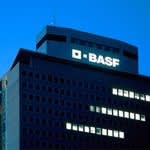 BASF will build a new plant to produce Ultrason polyethersulfone (PESU), one of BASF’s high-performance thermoplastics, at the company’s site in Yeosu, Korea.
BASF will build a new plant to produce Ultrason polyethersulfone (PESU), one of BASF’s high-performance thermoplastics, at the company’s site in Yeosu, Korea.The annual capacity of the new plant is 6,000 metric tons. Construction of this specialty plastics plant will start in early 2012 and production is expected to begin by early 2014. About 50 new jobs will be created once the plant is operational.
"Overall in Asia Pacific, we are investing approximately €2.3 billion from 2011 to 2015 in order to achieve our goal to produce 70% of our sales in the region. By establishing local production of our high performance specialty plastics in Korea, we can support the growth of key local industries," said Dr. Albert Heuser, President, Market and Business Development, Asia Pacific, BASF.
Ultrason is sold to customers in the electronics industry, as well as the automotive and aerospace industries for the production of heat-resistant light weight components and to the water treatment industry for manufacturing of water treatment membranes.
At present this specialty plastic is only produced at BASF’s Ludwigshafen site in Germany. “BASF is committed to strengthening its market position in the engineering plastics business,” said Dr. Wolfgang Hapke, President of BASF’s Performance Polymers Division. “This new plant will significantly enhance our engineering plastics position in the rapidly growing Asian market and reaffirm our dedication to being our customers’ supplier of choice for high performance materials.”
The Yeosu site was selected because of its highly trained and qualified workforce. Further, as it is a well-established, major BASF production site, the necessary infrastructure for the complex production structure of an Ultrason plant is already in place.
Ultrason is the trade name for the BASF product range of polyethersulfone (Ultrason E), polysulfone (Ultrason S), and polyphenylsulfone (Ultrason P). The product can withstand temperatures up to 220 degrees centigrade without altering its properties and possesses outstanding chemical stability.
In addition to its use in the electronics, automotive and aerospace industry, other Ultrason applications include membranes for medical devices, hot water and food contact parts for example in espresso machines, microwave-proof dishes or baby bottles. Ultrason is also used in the production of carbon fiber composite materials.
The Korean electronics industry is a major target market for Ultrason. The location also benefits from the proximity to other major markets such as China and Japan.



